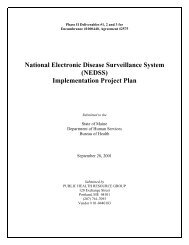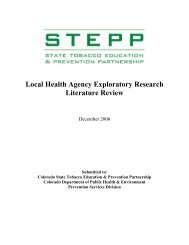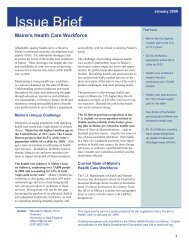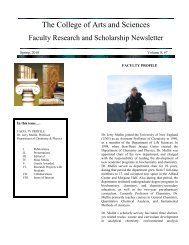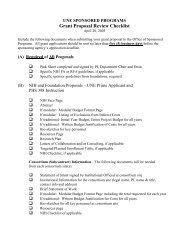Acute Flaccid Paralysis Accompanying West Nile Meningitis Ahmed ...
Acute Flaccid Paralysis Accompanying West Nile Meningitis Ahmed ...
Acute Flaccid Paralysis Accompanying West Nile Meningitis Ahmed ...
You also want an ePaper? Increase the reach of your titles
YUMPU automatically turns print PDFs into web optimized ePapers that Google loves.
A Case of Sudden Monocular Blindness<br />
Kroh, S, DO, Quas, M, MD<br />
Kent Hospital, Emergency Medicine Residency Program, Warwick, RI<br />
Introduction: A wide variety of causes exists for monocular vision loss. Retinal<br />
artery occlusion, retinal vein occlusion, acute angle glaucoma, corneal abrasion,<br />
endophthalmitis, episcleritis, Foreign Body, intraocular giant cell arteritis<br />
(temporal arteritis), migraine, trauma/hyphema, optic neuritis, compressive<br />
papilledema, retinal detachment, scleritis, sickle cell disease, and corneal ulcer<br />
are a few of the possibilities. Retinal vein occlusion is the second most common<br />
cause of vision loss worldwide second to diabetic retinopathy. Our patient<br />
presents with evidence of central retinal vein occlusion (CRVO) secondary to<br />
noncompliance with glaucoma medication.<br />
Case: An 87 year old female presents to the emergency department with sudden<br />
onset painless left eye blindness. She slept unusually late and this was present<br />
upon waking. She had no light perception in her left eye. Her past medical history<br />
included diabetes, hypertension, hypothyroidism, and mild dementia. She<br />
mentioned a vague history of using “eye drops” for glaucoma but has not seen an<br />
ophthalmologist in over four years. On exam the patient’s vital signs were stable.<br />
She had exophthalmos of the left eye. Visual acuity was 20/30 in the R eye with<br />
no light perception in the left. Intraocular pressure was 29 in the right eye and 82<br />
in the left. Fundoscopic exam revealed blurring of the optic disc with a diffuse<br />
retinal hemorrhages consistent with central retinal vein occlusion. The patient<br />
was given aspirin and consultation with ophthalmology was obtained.<br />
Unfortunately for this patient, nothing further could be done acutely and follow up<br />
was arranged for the following day.<br />
Discussion: The etiology of this patient’s central retinal vein occlusion (CRVO)<br />
is likely secondary to noncompliance with glaucoma medication. Conversely<br />
CRVO can cause glaucoma if not already present. Many patients will recover<br />
some amount of vision. However, the prognosis for our patient is poor due to the<br />
complete lack of light perception.






